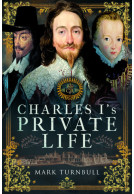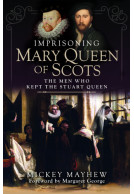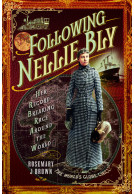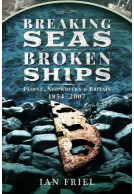The Nonconformist Revolution (ePub)
Religious dissent, innovation and rebellion
Imprint: Pen & Sword History
File Size: 12.1 MB (.epub)
Pages: 280
Illustrations: 30 black and white illustrations
ISBN: 9781473875692
Published: 23rd June 2020
| Other formats available | Price |
|---|---|
| The Nonconformist Revolution Paperback Add to Basket | £16.99 |
The Nonconformist Revolution explores the evolution of dissenting thought and how Nonconformity shaped the transformation of England from a rural to an urban, industrialised society.
The foundations for the Industrial Revolution were in place from the late Middle Ages when the early development of manufacturing processes and changes in the structure of rural communities began to provide opportunities for economic and social advancement. Successive waves of Huguenot migrants and the influence of Northern European religious ideology also played an important role in this process. The Civil Wars would provide a catalyst for the dissemination of new ideas and help shape the emergence of a new English Protestantism and divergent dissident sects. The persecution which followed strengthened the Nonconformist cause, and for the early Quakers it intensified their unity and resilience, qualities which would prove to be invaluable for business.
In the years following the Restoration, Nonconformist ideas fuelled enlightened thought creating an environment for enterprise but also a desire for more radical change. Reformers seized on the plight of a working poor alienated by innovation and frustrated by false promises. The vision which was at first the spark for innovation would ignite revolution.
"...the subject matter is nevertheless fascinating..."
Magonia Review
Featured in
Hexham Local History Society (Hexham Historian Newsletter)
Reviewer: John Barrett
The Essex Family Historian, August 2022
This well researched and highly readable book’s central thesis is that religious nonconformity is the driving force behind social upheavals and the rise of industrialism.
She provides an excellent description of the events and motivation of the rebels and their efficient communications system in Kent and Essex.
This is an enjoyable, well researched book that rattles along at a good pace.
Amanda Thomas tackles a mammoth task concisely and with aplomb.
As seen on the cover of
The Essex Family Historian, August 2022
Article: Lewes’ influence since the Reformation as a dissenting hotspot explored in new volume as featured by
Sussex Express, 22nd January 2021
Review by Paul Blake
WDYTYA? Magazine, February 2021
… there is a great deal to be learnt from this volume about the influence of nonconformists on the country’s transition to an urban, manufacturing society.
‘Book focuses on county's role in religious revolution’
Shropshire Star, 5th September 2020
Amanda J. Thomas composes a book that describes well this river which then becomes a sea and leads to the modern age. I also want to highlight how in addition to historical research, there is a considerable research in the archives and in the genealogy of many of the characters in the book. Anyone who has done some small research on their families (and this is true in Italy, where I write from, as in the UK) knows that deception, the relative you did not know you had or what you thought you had but does not appear in the records is always behind the corner. Another point in favor of Amanda Thomas' ability and patience. A book that I highly recommend.
On The Old Barbed Wire
Read the full Italian review here
This is a great book if you want to know more about religious dissent and those determined individuals who would let nothing but death stand in their way. Recommended to history buffs.
NetGalley, Ionia Froment
This is a fascinating book for definite, and took me back to my university days. A compelling read throughout and certainly a book I can see being aimed at the university sector as it would be of benefit both to students and teachers. The author Amanda Thomas has done a fantastic book making it very clear and well written, I have to say that at the back of the book there is a huge notes and bibliography section. There is also a number of family trees to help the reader further. So in conclusion this is a very good that I would happily recommend to others.
UK Historian
Read the full review here
It's very well-researched – at the back there are 70 pages devoted to family trees, notes, an extensive bibliography, and a comprehensive index. A topic that could be rather dry becomes much more interesting and more readily understood when presented in an historical context, and that's a credit to the author. There's so much in this book, and yet just one sentence could light up a dark corner of your family tree.
Lost Cousins
Read the full review here
Rating: 5 out of 5 stars
NetGalley, Carol Keogh
Based on the exploration of the various non conformist religions which sprang up in Britain in the medieval period, the author writes what is essentially a specialist work but is easy to read and very well written. She is highly regarded in her field and is for anyone who is curious about life in this period especially the poor and disenfranchised. Highly recommend for educators, students and lay people.
About Amanda J Thomas
Amanda Thomas is an author, historian and linguist with a particular interest in social and medical history. To date her books include Cholera - The Victorian Plague (Pen & Sword, 2015) and The Lambeth Cholera Outbreak of 1848-1849: The Setting, Causes, Course and Aftermath of an Epidemic in London (McFarland, 2009). Broadcast work comprises London 2000 Years Revealed (Channel 5, 2019), Who Do You Think You Are? (Wall to Wall Media/BBC1, 2016-17 and 2012-13), and The Flying Archaeologist (BBC4, 2012).
Amanda has previously worked in journalism, and public relations for television companies including The Walt Disney Company and Television New Zealand.
Born in Chatham, Kent, Amanda is passionate about supporting the heritage of the Medway Towns, and also that of Hertfordshire, where she now lives. She edits the historical journal.
Amanda’s interest in Nonconformism stems from the discovery that her ancestor, Simon Osmotherly was a Roundhead during the English Civil War and one of the founders of Quakerism in the North West of England.


















